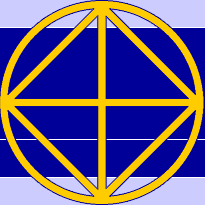Book Presentation
Teachings of Madame HPB
by Dr. K. Parvathi Kumar

Helena P. Blavatsky or HPB as she is lovingly called is one of the true initiates who had access to the visible and invisible worlds. HPB has been the grandest intelligence in the recent centuries. She had all the courage to speak the Truth in its original and was brave enough to destroy the dogmas of the East and the West.
In order that her teachings reach the aspirants of truth, certain dimensions are presented in this book, which are but a sample that provide a taste of her expression and teachings. May the readers who called forth this book find it useful.
Dhanishta, Visakhapatnam, India 2019
Sample:
Key to WisdomThere is but one key to all sacred books. In all the world scriptures there is a strong presence of esoteric allegory and symbolism. There is a key for interpreting the allegory and symbolism without which no scripture ever reveals the esoteric knowledge. That key has been furnished by Eastern Hindu-Buddhist canons of occultism. It fits as well into every scripture, be it Egyptian, Greek, Chaldean, Persian, Hebrew, Mosaic, and Christian scriptures. There are but blinds in the scriptures to protect the wisdom from the profane.
The key to the scriptures is not available, generally, in the market. The self-proclaiming scholars and pandits know nothing of it; only the Mahatmas, the Yogis, the Adepts and the initiated disciples hold the key, even in this age of Kali Yuga. The modern scholars are like the blind who see not but assert, and such assertions are propagated faster in a superficial world. Untruth travels faster than the Truth in the world. Truth appears to be a fiction, if not more than fiction. Those who hold the key do not claim of its possession and those who do not, bark aloud from the tower tops. The approach of the modern orientalists and professors is in its infancy. They freely judge Panini, the greatest grammarian, Lord Buddha, Pythagoras, and the like.
The key to wisdom of the scriptures is man himself.
The Incoming Faith and its Consequences
The knowledge has never been hidden. It is never kept a secret by the hierophants at any time. The initiates never hide knowledge, they are transparent and open to reveal, to those who seek. Sacred scriptures have been protected and guarded since there has been a relentless and forceful attempt to destroy them in the age of Kali. The seekers of Truth are too few. Others, who seek, know not how to seek and where to seek.
The days of Constantine were the days that brought about a turning point in human history. This was during 272 to 337 AD, when there was a supreme struggle to establish a religion of Nazarenes through destruction of the knowledge and the occult science, as existed at that time. The western world was throttled with the new religion, and the occult doctrines were sought to be burnt or mutilated, wherein contained the science of wisdom that proves the existence of a parent doctrine. The secret wisdom of today was openly taught in the temples of hierophants.
It was known that there was one fountainhead of wisdom, with ever flowing perennial source, which flowed in all directions into various streams and streamlets. The period of Buddha and Pythagoras and that of Neo-Platonists held high this wisdom, which later withdrew itself into the cave temples, due to the onslaught of the incoming religion with a personified God. The Emperor Constantine was the chief instrument in moulding the new religion to suit his political needs. He therefore conceived with a few Nazarenes, a politically suitable doctrine of God, which is good enough for the masses, who are generally gullible. The wisdom science suffered distortion into a personal faith. Faith apart, the science of wisdom exists in relation to cosmogenesis and anthropogenesis.
Old vs. New
Truly it looks as if since the world’s creation there has been but one age of real knowledge on Earth – the present age. In the misty twilight, in the grey dawn of history, stand the pale shadows of the old sages of world renown. The noontide brightness of knowledge has only now arrived, to be known by all. The knowledge of the past has ever been useful to their direct successors, but the successors have coloured it, according to their comprehension. Such colouring has hidden the wisdom. The rishis and the sages of the old walked far over the arid fields of myth and superstition. They indeed have left a few landmarks over the precious minds of philosophers.
The ancients have at best prepared and fertilized the field of knowledge but the moderns have planted in that field seeds of negation and agnosticism. To say that the philosophers of the past entertained untenable conceptions and that they lived an uncultured way of life is only to exhibit one’s own ignorance.
Many modern philosophers and scholars are acclaimed as most distinguished ones, while all of them, without exception have only dressed up the ideas of the old philosophers, whom they are ever ready to disparage.
For over twenty centuries, those who had read Plato have been aware that like most of the Greek and other noted philosophers, he had been initiated, but since he was tied down by the Sodalian Oath, he could only speak of certain things in real allegories. His reverence for the mysteries is unbounded.
Only initiates can understand the hidden meaning of the subject he dealt with. The speculations of Plato on the creation and the evolution of primordial men must be taken allegorically. The leading apparently incongruous features of Plato’s teachings are that God is the Universal Mind diffused through all things and the dogma of the soul’s immortality. Plato’s piety and the great veneration he felt for the mysteries are sufficient for asserting that he would not allow his indiscretion to get the better of that deep sense of responsibility that is felt by every Adept.
“Constantly perfecting himself in occult mysteries a man becomes truly perfect”.

 Circle of Good Will
Circle of Good Will Contact
Contact
